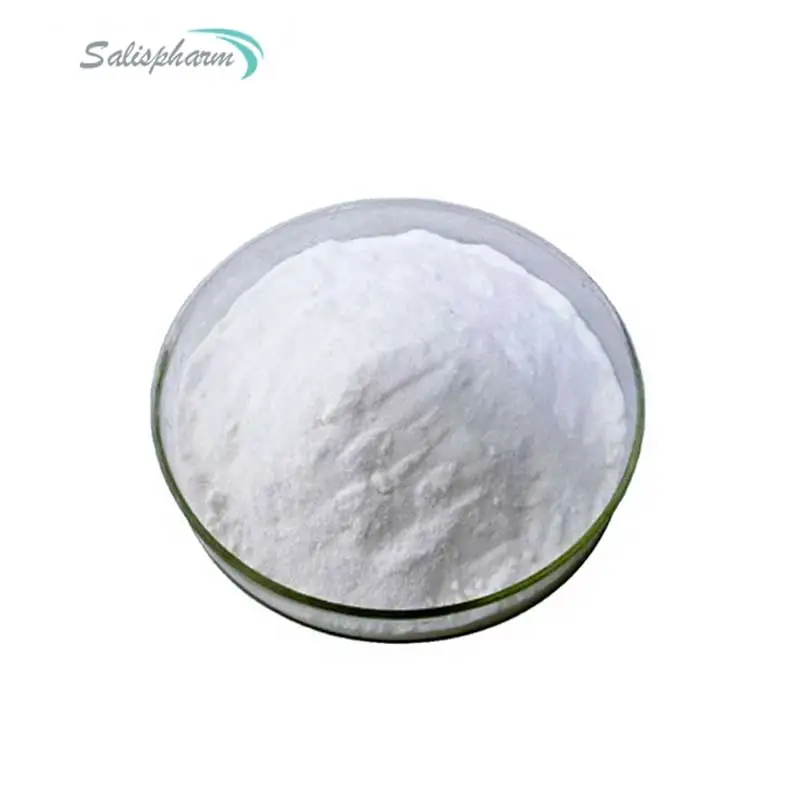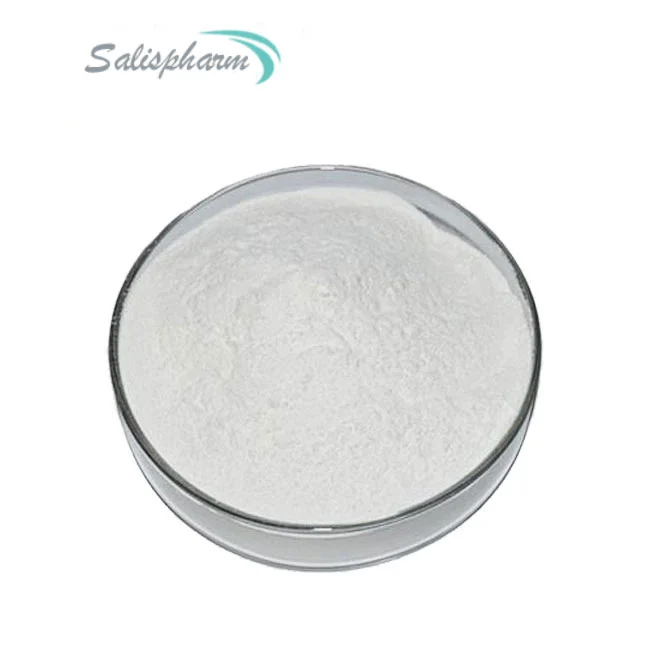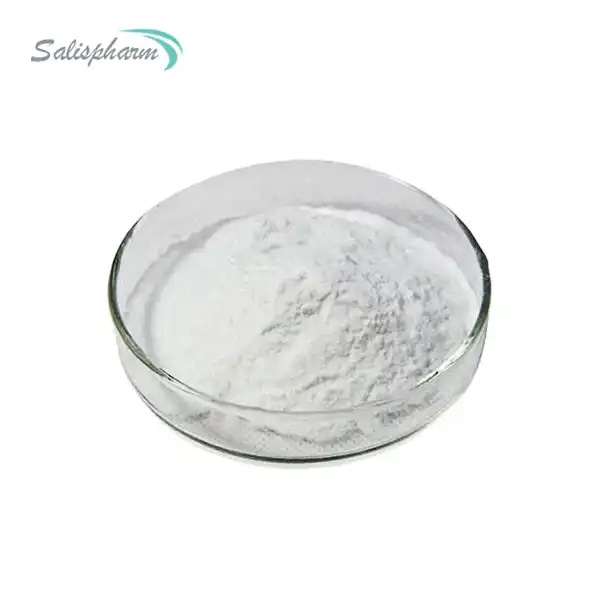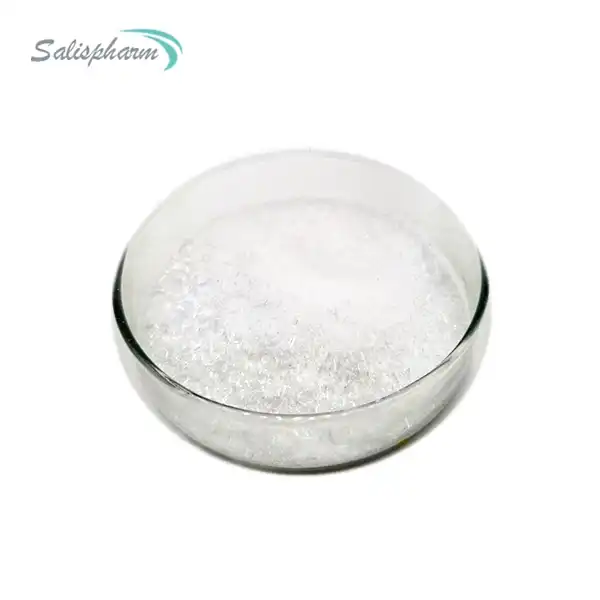Ibuprofen is a widely used over-the-counter (OTC) medication that belongs to a class of drugs called nonsteroidal anti-inflammatory drugs (NSAIDs). It is known for its effectiveness in reducing pain, fever, and inflammation. Ibuprofen works by inhibiting the production of prostaglandins, which are substances in the body that cause pain and inflammation. This versatile medication is commonly used to alleviate a variety of conditions, including headaches, menstrual cramps, toothaches, backaches, arthritis, and minor injuries.
How is ibuprofen powder different from tablets?
Ibuprofen is available in various forms, including tablets, capsules, and powder. While tablets are the most common form, ibuprofen powder has gained popularity due to its unique advantages. Here's how ibuprofen powder differs from tablets:
1. Absorption rate: One of the primary differences between ibuprofen powder and tablets is the rate of absorption. Ibuprofen powder is designed to dissolve quickly in water or other liquids, allowing for faster absorption into the bloodstream. This rapid dissolution can lead to quicker onset of pain relief compared to traditional tablets, which need to break down in the stomach before being absorbed.
2. Ease of ingestion: For individuals who have difficulty swallowing pills, ibuprofen powder offers a convenient alternative. The powder can be mixed with water, juice, or other beverages, making it easier to consume. This is particularly beneficial for children, elderly patients, or those with swallowing disorders who may struggle with taking tablets.
3. Dosage flexibility: Ibuprofen powder often comes in pre-measured sachets or packets, allowing for more precise dosing. This can be especially useful when administering the medication to children, where accurate dosing based on weight is crucial. Additionally, the powder form makes it easier to adjust dosages for those who require smaller or intermediate amounts that may not be available in standard tablet strengths.
4. Palatability: Some individuals find the taste of ibuprofen tablets unpleasant. Ibuprofen powder is often flavored, making it more palatable, especially for children. This improved taste can lead to better compliance with the medication regimen, particularly for those who need to take ibuprofen regularly.
5. Portability: While tablets are generally portable, ibuprofen powder in sachets can be even more convenient to carry. The flat, lightweight packets can easily fit into a wallet or small pocket, making them ideal for travel or on-the-go pain relief.
While ibuprofen powder offers these advantages, it's important to note that the active ingredient and overall effectiveness are the same as in tablet form. The choice between powder and tablets often comes down to personal preference, convenience, and specific needs of the individual.
Can ibuprofen powder be used for headaches?
Ibuprofen powder is indeed an effective option for treating headaches, and many people find it to be a convenient and fast-acting solution. Here's a comprehensive look at how ibuprofen powder can be used for headaches:
1. Efficacy for headaches: Ibuprofen is well-established as an effective treatment for various types of headaches, including tension headaches and migraines. Its ability to reduce inflammation and pain makes it a go-to choice for many headache sufferers. The powder form of ibuprofen maintains this efficacy while potentially offering faster relief due to its rapid absorption.
2. Quick onset of action: One of the primary advantages of using ibuprofen powder for headaches is its quick dissolution and absorption. When mixed with water, the powder form can enter the bloodstream more rapidly than tablets, potentially providing faster relief from headache pain. This quick onset can be particularly beneficial for those experiencing sudden or severe headaches.
3. Ease of use during migraines: For individuals suffering from migraines, which can often be accompanied by nausea and sensitivity to light and sound, the powder form of ibuprofen can be easier to take than tablets. The ability to quickly mix and drink the medication can be less challenging than swallowing pills when experiencing migraine symptoms.
4. Dosage accuracy: Ibuprofen powder often comes in pre-measured sachets, ensuring accurate dosing. This can be particularly important for headache treatment, where taking the correct amount of medication is crucial for effective pain relief without exceeding recommended doses.
5. Combination with other remedies: Some people find that combining ibuprofen powder with other headache remedies, such as staying hydrated or using cold compresses, can enhance its effectiveness. The powder form can be easily mixed into a large glass of water, promoting hydration alongside pain relief.
6. Preventive use: For individuals prone to recurring headaches, such as those associated with menstrual cycles or certain triggers, ibuprofen powder can be used preventively. Its easy-to-carry format makes it convenient to have on hand and take at the first sign of an oncoming headache.
When using ibuprofen powder for headaches, it's important to follow the recommended dosage instructions and not exceed the maximum daily dose. If headaches are frequent or severe, it's advisable to consult a healthcare professional to rule out any underlying conditions and ensure appropriate treatment.
What are the benefits of using ibuprofen powder for pain relief?
Ibuprofen powder offers several benefits for pain relief, making it a popular choice among those seeking effective and convenient pain management solutions. Here's an in-depth look at the advantages of using ibuprofen powder for pain relief:
1. Rapid onset of action: One of the most significant benefits of ibuprofen powder is its quick absorption rate. When dissolved in liquid, the powder form allows for faster dissolution in the stomach and quicker absorption into the bloodstream compared to tablets. This rapid onset of action can provide faster pain relief, which is particularly beneficial for acute pain conditions or when immediate relief is needed.
2. Versatility in pain management: Ibuprofen powder is effective for a wide range of pain conditions, including:
- Headaches and migraines
- Menstrual cramps
- Dental pain
- Arthritis and joint pain
- Muscle aches and strains
- Back pain
- Minor injuries and sprains
This versatility makes it a valuable addition to home medicine cabinets and travel kits.
3. Ease of administration: For individuals who have difficulty swallowing pills, ibuprofen powder provides an excellent alternative. It can be easily mixed with water or other beverages, making it more manageable for:
- Children
- Elderly patients
- Those with swallowing disorders
- Individuals who generally dislike taking pills
4. Precise dosing: Ibuprofen powder often comes in pre-measured sachets, allowing for more accurate dosing. This precision is particularly important for:
- Pediatric use, where dosage is based on weight
- Individuals who require specific doses that may fall between standard tablet strengths
- Those who need to carefully monitor their medication intake
5. Improved palatability: Many ibuprofen powder formulations are flavored, making them more pleasant to consume than traditional tablets. This improved taste can lead to:
- Better compliance with pain management regimens
- Easier administration to children
- A more positive experience when taking medication
6. Portability and convenience: Ibuprofen powder sachets are lightweight and compact, making them easy to carry in a wallet, purse, or pocket. This portability ensures that pain relief is always readily available, whether at work, while traveling, or during outdoor activities.
7. Potential for reduced gastrointestinal side effects: Some studies suggest that the powder form of NSAIDs, including ibuprofen, may be gentler on the stomach compared to tablets. The even distribution of the medication when dissolved in liquid could potentially reduce the risk of gastric irritation, making it a good option for those with sensitive stomachs.
8. Flexibility in combination with other therapies: Ibuprofen powder can be easily incorporated into comprehensive pain management strategies. For example:
- It can be mixed with cold or warm water, complementing temperature-based pain relief methods
- The powder can be taken alongside other non-pharmacological pain relief techniques, such as massage or physical therapy
9. Cost-effectiveness: In some cases, ibuprofen powder may be more cost-effective than other forms of the medication, especially when considering its rapid onset and potential for reduced waste due to precise dosing.
10. Enhanced absorption in certain conditions: For individuals with certain gastrointestinal conditions that may affect the absorption of tablet medications, the powder form may offer improved bioavailability, ensuring more effective pain relief.
While ibuprofen powder offers these numerous benefits for pain relief, it's important to use it responsibly and according to the recommended guidelines. As with any medication, it's advisable to consult with a healthcare professional, especially for chronic pain conditions or when using ibuprofen powder regularly.
If you are also interested in this product and want to know more product details, or want to know about other related products, please feel free to contact iceyqiang@aliyun.com.
References
1. Moore, N. (2020). Coronary Risks Associated with Diclofenac and Other NSAIDs: An Update. Drug Safety, 43(4), 301-318.
2. Rainsford, K. D. (2009). Ibuprofen: pharmacology, efficacy and safety. Inflammopharmacology, 17(6), 275-342.
3. Rabbie, R., Derry, S., & Moore, R. A. (2013). Ibuprofen with or without an antiemetic for acute migraine headaches in adults. Cochrane Database of Systematic Reviews, (4).
4. Blondell, R. D., Azadfard, M., & Wisniewski, A. M. (2013). Pharmacologic therapy for acute pain. American Family Physician, 87(11), 766-772.
5. Bushra, R., & Aslam, N. (2010). An overview of clinical pharmacology of Ibuprofen. Oman Medical Journal, 25(3), 155-1661.
6. Schachtel, B. P., Thoden, W. R., & Konerman, J. P. (1991). Headache pain model for assessing and comparing the efficacy of over-the-counter analgesic agents. Clinical Pharmacology & Therapeutics, 50(3), 322-329.
7. Derry, S., Wiffen, P. J., & Moore, R. A. (2017). Aspirin for acute treatment of episodic tension‐type headache in adults. Cochrane Database of Systematic Reviews, (1).
8. Pierce, C. A., & Voss, B. (2010). Efficacy and safety of ibuprofen and acetaminophen in children and adults: a meta-analysis and qualitative review. Annals of Pharmacotherapy, 44(3), 489-506.
9. Deeks, J. J., Smith, L. A., & Bradley, M. D. (2002). Efficacy, tolerability, and upper gastrointestinal safety of celecoxib for treatment of osteoarthritis and rheumatoid arthritis: systematic review of randomised controlled trials. BMJ, 325(7365), 619.
10. Ong, C. K. S., Lirk, P., Tan, C. H., & Seymour, R. A. (2007). An evidence-based update on nonsteroidal anti-inflammatory drugs. Clinical Medicine and Research, 5(1), 19-34.









